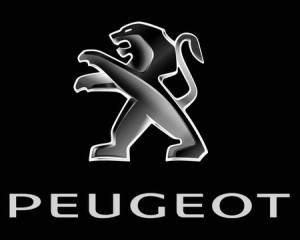By Gilles Guillaume and Laurence Frost
Peugeot Citroen will open an engineering center in Morocco with consulting firm Altran in the first major step under new boss Carlos Tavares to increase the French car maker’s footprint in lower-wage countries, sources said.
Peugeot will outsource some research and development functions to the new Altran center, creating 1,500 jobs, two people familiar with the plan said, as the carmaker weighs an eventual investment in low-cost vehicle assembly in Morocco.
The site in Casablanca will specialize in computer-assisted design, modeling and technical documentation. The move could pave the way for an assembly plant to follow in the footsteps of French rival Renault’s no-frills car factory up the coast in Tangier.
“Morocco is on its radar,” one source said. Moroccan officials are in “serious discussions with several carmakers including PSA”.
A Peugeot spokesman said there were no plans for a low-cost assembly plant and would not confirm the Casablanca R&D center. Paris-based Altran, an engineering services specialist, said there was “no new contract” with Peugeot, declining to respond to further questions.
Peugeot shares rose following the Reuters report and were up 1.8 percent at 9.42 euros as of 1605 GMT (11:05 a.m. EST), valuing the company at 7.2 billion euros.
The Moroccan R&D move is an important step for Peugeot as it seeks to regain competitiveness, and a symbolic win for the North African kingdom reflecting its growing industrial sophistication in sectors such as cars and aerospace.
But any impact on jobs in France, where Peugeot is already reducing its engineering workforce, would be unpopular with unions and sensitive for the government.
Heavily reliant on Europe for sales and production, Peugeot survived the region’s six-year market slump only after a 3 billion euro ($3.75 billion) share issue that saw the French state and China’s Dongfeng take 14 percent stakes.
MID-MARKET
The battering was worsened by Peugeot’s dependence on the mid-market, where pricing and demand collapsed, while premium rivals and no-frills brands like Renault’s Dacia fared better.
The Peugeot 301 and Citroen C-Elysee are the closest thing the company currently has to a budget offering, built in Spain on the stripped-down architectures of pricier models.
Its new Spanish-built C4 Cactus also signals a move by the core Citroen lineup into lower price points that may ultimately call for a similar shift on costs.
“We can’t sell cars in Turkey or North Africa that have been made in France or the euro zone,” Chief Financial Officer Jean-Baptiste de Chatillon said in February, adding that the bailout would help “build capacity to serve regions such as the periphery of Europe”.
Soon afterwards, CEO Tavares pledged to double component sourcing from low-cost countries to 40 percent while maintaining 75 percent of the group’s R&D activities in France, where they employed 14,500 workers last year.
Before the capital increase announcement, the French government had approved a new low-cost plant as part of the pitch to investors, an official source said.
While the low-cost plan remains live, its time frame has receded as Peugeot focuses on immediate restructuring challenges at home as well as a possible reopening of the Iranian market, according to three sources with direct knowledge of the matter.
With the French economy struggling and unemployment stuck above 10 percent, government sensitivities have been heightened by production plans that appear to leave Peugeot plants in Rennes and Poissy exposed to future cuts, sources said.
A new low-cost production investment “is not one of the levers in our recovery plan,” Tavares told Reuters last month, refusing to be drawn further. “We don’t need it to meet our targets.”
(1 US dollar = 0.8010 euro)
(Additional reporting by Aziz El Yaakoubi in Rabat; Editing by Giles Elgood)








